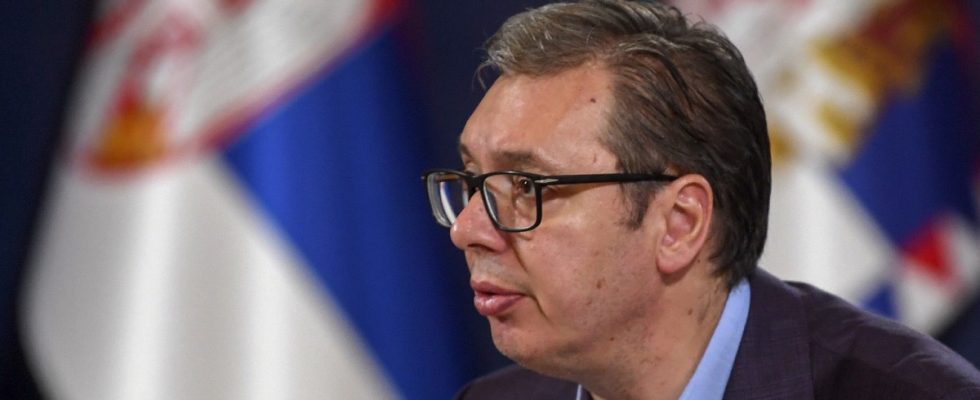There is already an election campaign in Belgrade. After none of the political camps in the Serbian capital managed to form a coalition with the election results on December 17th, citizens are being called to the polls again. According to the legal deadlines, the new election must be held between April 28th and June 2nd; President Aleksandar Vučić said at the weekend that he preferred the earliest possible date: it was “the most logical option to go to the elections immediately.”
From the opposition’s point of view, this was – once again – overstepping the boundaries of Vučić, who as president had no say at all about the election date. However, it fit into the pattern that had already run through the election campaign before the national, early parliamentary and local elections on December 17th. Although Vučić himself did not stand for election, he was almost omnipresent in the largely pro-government media for weeks in support of his party, the Serbian Progressive Party (SNS). Election observers from the non-governmental organization CRTA criticize the votes in retrospect as “not free and fair”: state institutions were abused to support party interests; The ruling party had gained “illegal advantages” in this way.
There was pressure on public employees, says the OSCE
The election observation mission of the Organization for Security and Co-operation in Europe (OSCE) comes to similar conclusions: The election campaign was “dominated by the incumbent president” – and characterized by “hardened polarization, aggressive rhetoric, personal degradation and inflammatory language.” There were also incidents in which “pressure was put on public employees” and “public resources were misused.”
The OSCE rapporteurs also criticize that the Serbian authorities have failed to investigate allegations of “large-scale voter migration”. CRTA, for example, had made such allegations in detail: According to this, tens of thousands of people from different parts of the country – and even from the neighboring countries of Bosnia-Herzegovina and Montenegro – were systematically brought to the capital in order to be registered on the voter lists based on false residence information.
Despite such manipulations, the government camp in the capital had not managed to form a coalition with a majority. After the deadline expired on March 3rd, new elections must now be held in Belgrade. In a televised speech on Sunday evening, Vučić said he was calling on the Interior Ministry to take into account the “recommendations” of OSCE election observers. At the same time, he emphasized that there was “no pressure from abroad” in the decision to call new elections.
The opposition alliance “Serbia Against Violence” (SPN) published a list of demands for the planned new election on Monday. A parliamentary committee must be formed to monitor the voting process; Also, only voters who have been resident in the respective municipality for at least six months should be allowed to vote in a local election.
A visit to a restaurant triggers discussions
Meanwhile, a photo caused discussion the Kosovo news portal RKS published: It shows the Serbian ambassador to the US, Marko Ðurić, at a restaurant table with Milan Radoičić, an influential politician and businessman who admitted in September to organizing a terrorist attack (which he called a “defensive operation”) in northern Kosovo. Radoičić is wanted by Interpol and is under US sanctions.
Ðurić, who is considered a possible future head of Serbia’s government, spoke of a “negative campaign”; he has never hidden or been ashamed of the “very public contacts I have at work.” He has already met with Kosovo Albanian leaders who are accused of “unspeakable war crimes against my people.”

